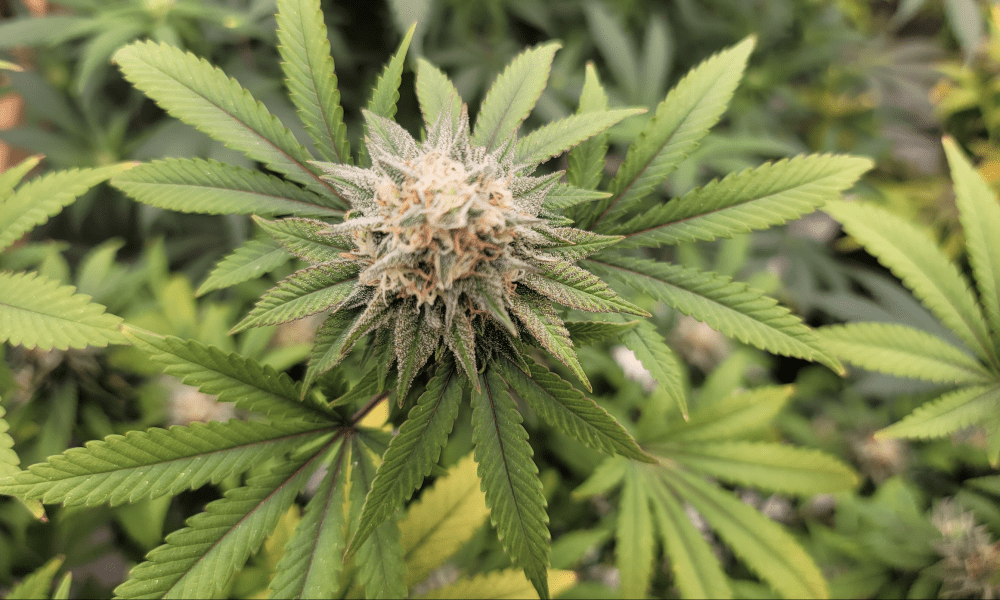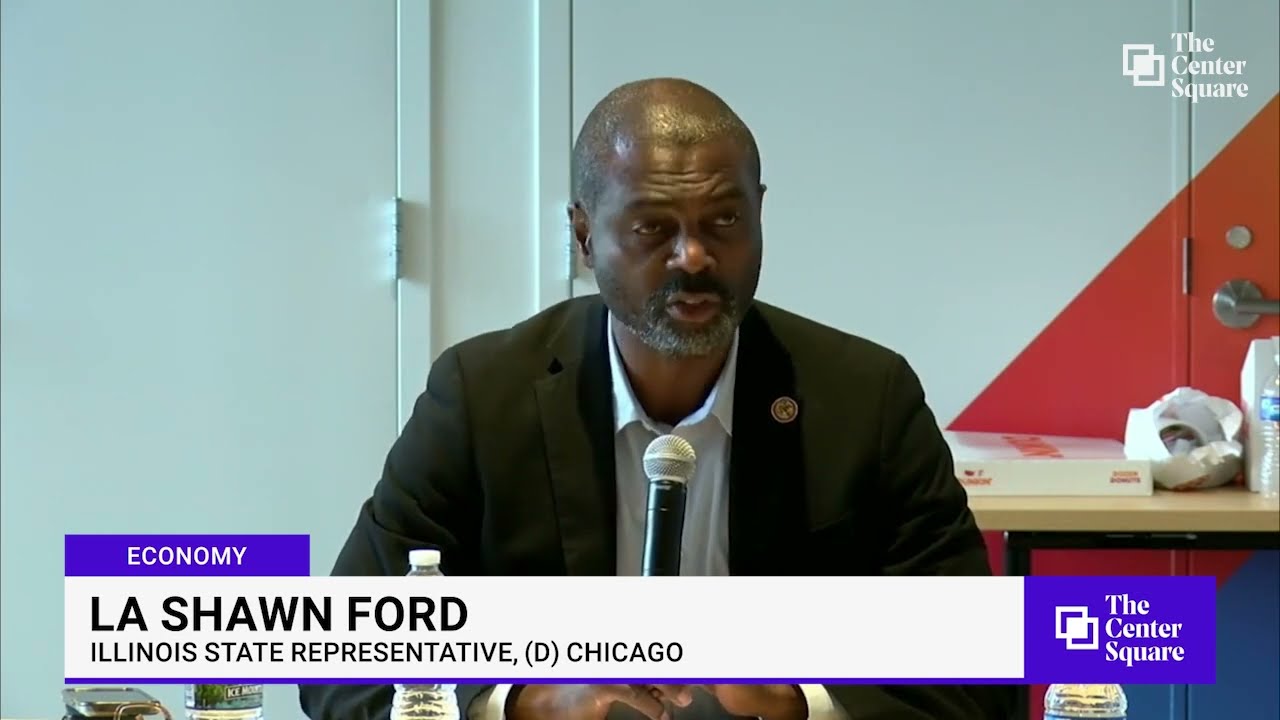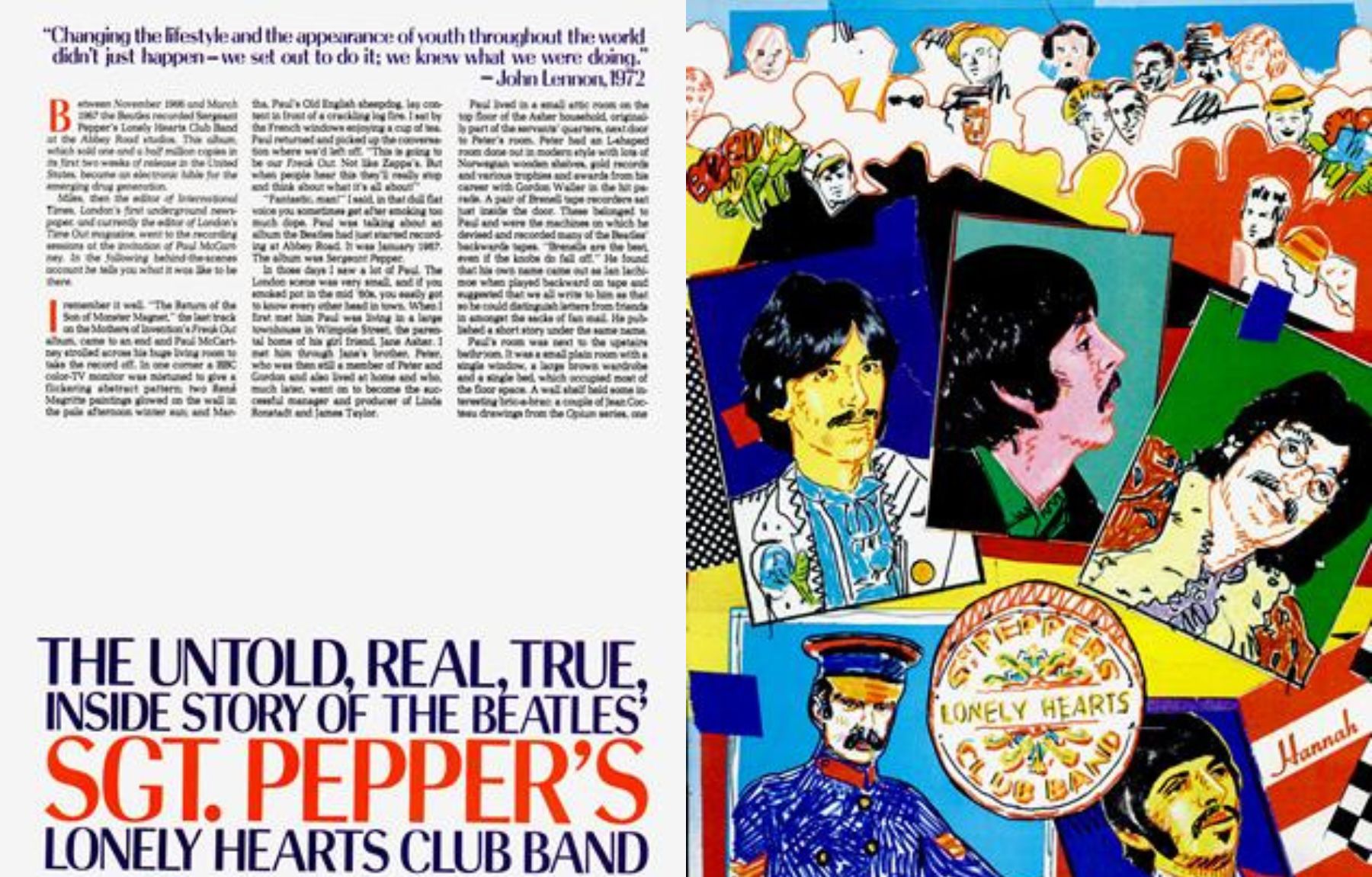featured
Senate Spending Bill Would Federally Ban Intoxicating Hemp Products After One Year
Published
2 days agoon

Kentucky Sen. Mitch McConnell (R) is pushing federal lawmakers to change the 2018 Farm Bill — legislation that he championed while serving as the Senate Majority Leader — to close the federal “loophole” that allows companies to manufacture and sell intoxicating hemp products, Louisville Public Radio reports.
The U.S. Senate Appropriations Committee advanced an agricultural spending bill Thursday that closely resembles another proposal in the House that would federally prohibit the sale of intoxicating hemp products. The Senate version, however, includes a one-year grace period for current hemp operators to pursue regulatory allowances for the industry.
According to McConnell, the Senate version of the bill “takes us back to the original intent of the 2018 farm bill and closes this loophole,” preventing “the sale of unregulated intoxicating lab-made, hemp-derived substances with no safety framework,” the report said.
Meanwhile, Oregon Sen Jeff Merkley (D) said he was grateful for the provision delaying the hemp product crackdown by one year, but he is still concerned the proposal would be devastating for the hemp industry, even for operators that produce CBD and other non-psychoactive products.
“There are other products that come from hemp, such as CBD, that has, in fact, been a significant factor as a health care supplement in many, many products across America that does not have a hallucinogenic effect,” Merkley said.
Notably, Kentucky’s other Republican Senator, Sen. Rand Paul, strongly opposes the effort to close the so-called hemp products loophole, arguing that doing so would “completely destroy the American hemp industry.”

Author: mscannabiz.com
MScannaBIZ for all you Mississippi Cannabis News and Information.
You may like
-


Westerville debuts cannabis drive-thru for 'fast, convenient service'
-


Nebraska Medical Marijuana Advocate Who Was Charged With Notary Violations On Legalization Petition Is Running For Governor
-


Illinois Lawmaker Convenes Initial Meeting To Discuss Challenges For State’s Hemp Industry
-


THE UNTOLD, REAL,TRUE, INSIDE STORY OF THE BEATLES’ SGT. PEPPER’S LONELY HEARTS CLUB BAND (1979)
-


Cannabis awards take center stage at California State Fair as industry faces higher taxes
-


ICE Raid Turns Violent at Camarillo Cannabis Farm
featured
Nebraska Medical Marijuana Advocate Who Was Charged With Notary Violations On Legalization Petition Is Running For Governor
Published
4 hours agoon
July 13, 2025
“I didn’t go fight a war and I didn’t go defend the United States for a select few people to turn back the voice of the 70 percent.”
By Zach Wendling, Nebraska Examiner
A grassroots advocate for medical cannabis who is at the center of some Nebraska state officials’ efforts against the use of the drug voters approved is running for governor in 2026.
Jacy Todd of York, 54, who runs a CBD health and wellness retail store in central Nebraska, says he is running to be a “voice of the people.” In part, he said he wants to show it’s not the “richest” people who get into office, that a middle-class family man can as well.
Todd is the first Republican to challenge incumbent Gov. Jim Pillen (R) ahead of the May 2026 primary. The winner advances to the November 2026 election.
“I want to provide that hope for everybody and let them know that there is an out,” Todd told the Nebraska Examiner. “We can stand together. We can push back.”
Todd is no stranger around the Nebraska State Capitol or in the public eye. In October, Hall County Attorney Marty Klein, Nebraska Attorney General Mike Hilgers (R) and their prosecutors charged Todd with 24 counts of improper notarizations, or “official misconduct”—Class II misdemeanors on the most recent medical cannabis ballot measure.
Each count refers to a different date that prosecutors allege Todd notarized a specific circulator’s petitions outside of the circulator’s presence.
Todd has repeatedly denied those allegations and again told the Examiner he is innocent and that his integrity remains “fully intact.”
‘Grassroot this all the way’
Todd said he probably would have been scared if the state had come after him 10 years ago. But he says people are tired and frustrated and want change. He plans to travel the state and meet Nebraskans to learn what’s bothering them and see how he can help.
Pillen already had about $3.7 million in campaign cash on hand as of January. But Todd said he will “out voice” Pillen and challenge Pillen to debates. During Pillen’s 2022 campaign, he declined debates but did participate in some candidate forums.
Todd said grassroots Nebraskans are charging forward for change.
“I think that Nebraska is a powerful enough state that we could grassroot this all the way to the Capitol and clean house up there,” Todd said.
Part of Todd’s intention to run is also to root out resistance to the people’s will. He started thinking about running for governor as he saw politicians resist the will of more than 71 percent of Nebraska voters to legalize medical cannabis and 67 percent of voters to regulate it.
“I didn’t go fight a war and I didn’t go defend the United States for a select few people to turn back the voice of the 70 percent,” Todd said.
Medical cannabis focus
A combat medic in Operation Desert Storm in his 20s who later joined the Nebraska National Guard, Todd said he began to question the medical expertise of the U.S. Food and Drug Administration as well as the U.S. Department of Veterans Affairs, which suggested he “try” one medication after another to treat his post-traumatic stress disorder, which he said drove him at one point to consider taking his own life.
But when Todd tried cannabis to deal with his pain, he said it led to a “best night’s sleep.” Todd said he continued to research cannabis, which continued to help him.
At one point, Todd said he met cannabis doctors in Colorado and started doing some studies with them. One doctor told Todd that cannabis had saved his life because of interactions with the CB-1 receptors in his brain and endocannabinoid system, so he created his business Herban Pulse to help other Nebraskans find some relief.
As a cannabis user for almost 30 years, Todd said he’s told lawmakers he’s “living proof” of being a functional member of society, going on to run Little League Baseball program and be a scoutmaster. He added he can challenge any lawmaker who argues cannabis hurts intelligence.
“If you guys want to have an IQ test with a pothead, let’s have it. I’ll embarrass you guys to no end,” Todd said with a laugh.
Todd said one of his goals as governor is to advance Nebraska’s cannabis industry to be the best in the nation, including with more research.
He said that while Hilgers and others in the state rule by “visions” of what hemp or cannabis should have been legalized, he sees hypocrisy in trying to outlaw “synthetic” marijuana on one hand while trying to forbid, through regulations, the in-state sale of raw marijuana plant flower on the other.
Notary criminal allegations
Todd said he got a call from the Hall County Sheriff’s Office last August or September and immediately knew it was a coordinated, hyper-focused look into the campaign that he had been a volunteer for the past four years.
He expected the pushback but didn’t expect to be a target. Todd said he told an investigator bluntly that he got his notary license to help with medical cannabis and followed all applicable rules, including witnessing the circulator signature of another campaign volunteer who was criminally targeted last fall.
The investigator asked Todd specifically about that Grand Island man, Michael Egbert, who would go on to plead guilty to illegally adding voters to the medical cannabis petitions, including by using a phone book. None of the Egbert-collected signatures were counted.
Todd said Egbert would come into his store on Mondays, where he would witness Egbert’s signature. That’s the detail Egbert and prosecutors alleged Todd did not do on 24 dates.
Todd said he recalls telling the investigator, “You picked the right guy,” of Egbert. At a separate civil trial against the medical cannabis organizers last fall, Egbert said he has a medical condition that impairs his memory, which some of the products from Todd’s shop sought to help.
The civil trial seeking to disqualify the petitions from reaching the November 2024 ballot ultimately failed, and Todd said he told his attorney as he prepared to be a witness in that case: “I tell the truth. I have nothing to hide. Set us up for a deposition.”
“I’ll do depositions as long as they want to keep on doing depositions. I’ll talk to anybody about it. I didn’t do anything wrong,” Todd said. “If you speak of truth, you don’t have to worry about getting caught up in anything.”
Todd said he didn’t plead his Fifth Amendment rights against self-incrimination and answered every question. He was slated to testify at the civil trial, but he was injured just days before after falling through a roof. He has been recovering since.
When investigators reached out to him, Todd said he was angry. But he was also determined to win.
“It brought me probably closer to the situation as far as looking at the corruption in the Capitol, and it’s a select few,” Todd said. “My goal is this: I think if I could cut the puppet strings coming from D.C. into Nebraska, I think that’s a start.”
Headed to trial
The criminal case against Todd was initially dismissed, with his county judge deciding notaries could not be charged in the manner that Todd was. Todd is believed to be the first notary charged with criminal malfeasance for notarial duties in the state, if not the nation, according to Todd’s attorney and multiple court observers.
A Hall County District Court judge reversed that ruling, sending the case back down to trial. The district judge likewise questioned the resources being used to pursue Todd “when looking at the…voice of its residents.”
Todd said he and his attorney plan to “roll the dice” on 12 jurors, instead of one judge, with Todd adding: “I don’t think it’s going to take long at all and that they’re going to find me not guilty.”
Todd’s criminal case heads to trial this September. He retains his notary license.
‘I will fight’
Legal observers see Todd’s charges as a possible test case for criminally scrutinizing notaries involved in petition campaigns or other efforts that government officials might disagree with in Nebraska or other states.
Todd said he plans to win the governor’s race and change the state’s course immediately, including by upholding honesty and transparency.
He said that includes no closed-door meetings and advocating for the elimination of secret ballots for legislative leadership every two years, a long-held goal by many in the GOP.
Todd said he would continue to address property taxes and end a “pyramid scheme” of shifting taxes between property and sales taxes. He wants to pay for tax relief and reduce government spending by implementing an independent audit team, starting at the Capitol, at the “bread and butter of things,” to find millions upon millions of state spending dollars that he says could be saved.
Pillen has sought to reduce the annual $5.3 billion in property taxes, most to local K–12 schools, since taking office in 2023 by broadening the state’s sales tax base. Lawmakers have balked multiple times.
Todd also plans to meet with governors and state leaders of other states to see what solutions might work in the Cornhusker State.
Of Todd’s message to Nebraskans, he said he wants to work for the people and that “four more years of Pillen will be a bitter pill for all of Nebraskans to swallow,” a dig at Pillen’s comments this spring that he would carry out medical cannabis but make sure the medicine would be a “bitter pill to swallow” so it would not trickle over to recreational marijuana.
“I will fight for what is right for all of us, all of Nebraska,” Todd said. “I don’t pick and choose sides.”
This story was first published by Nebraska Examiner.
Photo courtesy of Mike Latimer.

Author: mscannabiz.com
MScannaBIZ for all you Mississippi Cannabis News and Information.
featured
Illinois Lawmaker Convenes Initial Meeting To Discuss Challenges For State’s Hemp Industry
Published
6 hours agoon
July 13, 2025
“The differentiation nationwide between hemp and marijuana products is an attempt by one industry to take more control over the other industry.”
By Greg Bishop, The Center Square
Discussions continue among stakeholders in the Illinois hemp industry to come to what they say should be common sense regulations.
The Illinois Healthy Alternatives Association hosted its first panel discussion Thursday in Chicago. State Rep. La Shawn Ford (D-Chicago) said the goal is to define and discuss the challenges facing the hemp industry.
“Both nationally and at the state level, and discuss legislative solutions to ensure that children and minors are protected while also enabling adult consumers to access alternative health solutions that they need,” Ford said.

Hemp was rescheduled in 2018 with that year’s federal farm bill, opening up the industry. Since then, hemp products have come in all shapes and sizes, including delta-8 THC, a derivative with intoxicating properties some worry is too accessible to youth.
Part of the debate is what age to restrict hemp sales. Craig Katz said whether it’s 18 or 21 depends on who you ask.
“It’s an issue that no one should object to. Everyone should want to protect children. And that’s one of our primary goals, is to protect children,” Katz said. “The problem is, I think, to some extent, it’s become a political football. And, you get different sides of the aisle that want to make a statement in one way, shape or form.”
Cannabis, which is still illegal on a federal level, has been legalized and taxed for recreational use in Illinois. Products are taxed up to more than 40 percent, depending on the potency of the product. Hemp is different than cannabis, being much weaker in the amount of the intoxicating compounds cannabis, or marijuana, is known for.
Katz said their efforts are to secure the hemp industry’s independence.
“And that’s what this mostly comes down to in terms of the differentiation nationwide between hemp and marijuana products is an attempt by one industry to take more control over the other industry,” Katz said.
Part of the conversation also discussed uncertainty about possible changes to hemp regulation in a new federal farm bill. Those details are still being negotiated.
The next panel discussion will be in Rockford. A date has yet to be determined.

Author: mscannabiz.com
MScannaBIZ for all you Mississippi Cannabis News and Information.
featured
THE UNTOLD, REAL,TRUE, INSIDE STORY OF THE BEATLES’ SGT. PEPPER’S LONELY HEARTS CLUB BAND (1979)
Published
7 hours agoon
July 13, 2025
Original publication: October of 1979.
THE UNTOLD, REAL,TRUE, INSIDE STORY OF THE BEATLES’ SGT. PEPPER’S LONELY HEARTS CLUB BAND
“Changing the lifestyle and the appearance of youth throughout the world didn’t just happen-we set out to do it; we knew what we were doing.” -John Lennon, (1972)


Between November 1966 and March 1967 the Beatles recorded Sergeant Pepper’s Lonely Hearts Club Band at the Abbey Road studios. This album, which sold one and a half million copies in its first two weeks of release in the United States, became an electronic bible for the emerging drug generation, then the editor of International Times, London’s first underground newspaper, and currently the editor of London’s Time Out magazine, went to the recording sessions at the invitation of Paul McCartney. In the following behind-the-scenes account he tells you what it was like to be there.
I remember it well. “The Return of the Son of Monster Magnet,” the last track on the Mothers of Invention’s Freak Out album, came to an end and Paul McCartney strolled across his huge living room to take the record off. In one corner a BBC color-TV monitor was mistimed to give a flickering abstract pattern; two René Magritte paintings glowed on the wall in the pale afternoon winter sun; and Martha, Paul’s Old English sheepdog, lay content in front of a crackling log fire. I sat by the French windows enjoying a cup of tea. Paul returned and picked up the conversation where we’d left off. “This is going to be our Freak Out. Not like Zappa’s. But when people hear this they’ll really stop and think about what it’s all about!”
“Fantastic, man!” I said, in that dull flat voice you sometimes get after smoking too much dope. Paul was talking about an album the Beatles had just started recording at Abbey Road. It was January 1967. The album was Sergeant Pepper.
In those days I saw a lot of Paul. The London scene was very small, and if you smoked pot in the mid ’60s, you easily got to know every other head in town. When I first met him, Paul was living in a large townhouse in Wimpole Street, the parental home of his girlfriend, Jane Asher. I met him through Jane’s brother, Peter, who was then still a member of Peter and Gordon and also lived at home and who, much later, went on to become the successful manager and producer of Linda Ronstadt and James Taylor.
Paul lived in a small attic room on the top floor of the Asher household, originally part of the servants’ quarters, next door to Peter’s room. Peter had an L-shaped room done out in modern style with lots of Norwegian wooden shelves, gold records and various trophies and awards from his career with Gordon Waller in the hit parade. A pair of Brenell tape recorders sat just inside the door. These belonged to Paul and were the machines on which he devised and recorded many of the Beatles’ backwards tapes. “BreneÜs are the best even if the knobs do fall off.” He found that his own name came out as Ian Iachimoe when played backward on tape and suggested that we all write to him as that so he could distinguish letters from friends in amongst the sacks of fan mail. He published a short story under the same name.
Paul’s room was next to the upstairs bathroom. It was a small plain room with a single window, a large brown wardrobe and a single bed, which occupied most of the floor space. A wall shelf held some interesting bric-a-brac: a couple of Jean Cocteau drawings from the Opium series, one in a cracked frame; a few first-edition books; a volume of Alfred Jarry; and some guitar picks. Under the bed where the chamber pot used to be were a pile of gold records and a presentation MBE. An electric bass was propped in the corner, and stenciled on the case in white letters: B E A T L E s. No room for more instruments. He kept some in Peter’s room. No room even for records. The few that he had were kept outside on the landing in a rack on top of a chest of drawers next to the amateurly wired bell system that announced whom an incoming telephone call was for.
I think there would be three rings for Peter, four for Paul. Paul had no phone of his own. In fact the very idea probably hadn’t occurred to him. This was at a time when his accountant had already informed him that he was technically a millionaire. Not that he lacked money. Peter once went into Paul’s room to borrow some socks, pulled open the sock drawer and was showered with dollar bills that Paul had forgotten about.
On the floor below lived Jane, a successful actress; but Victorian propriety meant that they couldn’t sleep together in the parental home, so in 1966 Paul finally bought himself a house. Unlike the other Beatles, who had all bought huge mansions in the country, Paul decided to stay in the city and bought a beautiful free-standing Regency house next to Lords cricket ground.
The house, which was built in about 1880, had a lamppost in the front drive and an orchard at the end of the garden. It was surrounded by a high wall and had a pair of gates covered in black expanded metal to prevent the ever-present fans from writing on them. You needed to know the bell code to get in. From the upstairs music room you could see the hands and heads of young girls who would hold onto the top of the wall for a few moments before dropping back exhausted. The house was within walking distance of Abbey Road, where Sergeant Pepper was being recorded.
From the very beginning, everyone knew that this album was going to be special. It was going to work on all levels. Paul described it like this: “The idea was to do a complete thing that you could make what you liked of, just like a little magic presentation. We were going to have a little envelope in the center with the nutty things you can buy at Woolworth’s, a surprise packet.” Not just another Beatles album but something to look at, to do and to listen to—a complete experience. It also had another level: “There are only about a hundred people in the world who understand our music” (John Lennon, 1967).
In its time Sergeant Pepper was the most expensive album ever made. It took an unprecedented 400 hours of studio time and cost over £10,000 ($20,000), which nowadays would be cheap. The Beatles’ first album was made in a day/ The Sergeant Pepper sessions began in November 1966 and continued through March 1967. First came “Penny Lane” and “Strawberry Fields Forever,” numbers that gave a good idea of the new direction the Beatles were going, particularly “Strawberry Fields,” with Paul’s use of Mellotron, George on Indian temple harp, and with its use of cello, trumpet and electronic drum track.
I recorded a conversation with Paul at his new house the day after “Strawberry Fields” was recorded. It was November 1966, and to the public and most of the fans the Beatles were still the Four Moptops. For this article I dug out the dusty old cassette and played it again. As I expected, ghosts hiding in old interiors came to life as Paul’s Liverpudlian voice predicted the future:
“People, quite a few people, are prepared for the next sound. They’re ready, they’re waiting for the next scene in music, the next scene in sound. A lot of people now are ready to be led to the next move.” He was fully aware of what they were doing.
As the conversation rambled on, he described his approach to music: “With everything, with any kind of thing, my aim seems to be to distort it. Distort it from what we know it as, even with music, with visual things. But the aim is to change it from what it is to see what it could be. To see the potential in it all.
“The point is to take a note and wreck the note and see in that note what else there is in it that a simple act like distorting it had caused. It’s the same with film, to take a film and superimpose on top of it so you can’t quite tell what it is anymore. It’s all trying to create magic. It’s all trying to make things happen that you don’t know why they’ve happened. I’d like a lot more things to happen like they did when you were kids, when you didn’t know how the conjuror did it and you were happy to just sit there and say, ‘Well, it’s magic!’ “Ordinary everyday thought is so messed up that you’ve got to allow for the possibility of there being a lot, lot more than we know about. Therefore to take things that we already know about in one way: to bang one note on the piano, instead of trying to put millions of notes into it, just to take the one note of the piano and listen to it shows you what there is in one note. There’s so much going on in one note, but you never listen to it! So many harmonics buzzing around, that if all that’s happening in one note, and if in one frame of a picture all that’s happening… the thing is, it could take a bit of looking into!” Paul had had a number of insights from his use of acid.
Generally, the music is by Paul, and most of the words are by John, but there are plenty of exceptions. Not all the material was new. Paul originally wrote “When I’m 64” in 1962-3 during the Cavern days in Liverpool, but he revised it in honor of his father, who was 64 in 1967, and it was ideal for Sergeant Pepper since the album was supposed to have something on it for everyone.
Paul was also completely responsible for “She’s Leaving Home.’’ I arrived at the studio one night and ran into George in the corridor leading to Studio 2. He was dressed in a dragoon jacket, yellow crushed-velvet pants, and was carrying a smoldering bunch of incense sticks. When George talks to you he likes to get up real close, about eight inches from your face. “You should have been here yesterday, man,” he said excitedly. “We recorded this beautiful song about a girl leaving home. It really says it all!” He gave me a stick of incense and left for the canteen. The Beatles took many of their stories from the daily newspapers. “She’s Leaving Home” came from a story in the Daily Mirror, the most popular newspaper in the United Kingdom. A girl left home and her father said, “We gave her everything, I don’t know why she left home.” As Paul said, “He didn’t give her that much, not what she wanted when she left home.” George Martin was almost moved to tears when he first heard it, and provided one of his most beautiful arrangements for it.
The “Sergeant Pepper” theme was worked on as a device to unify the album, which was originally intended to not have any spirals—each song was to segue right into the next—only EMI would not agree. The actual title was one of those random things songwriters come up with. Paul: “I was thinking of nice words like ‘Sergeant Pepper’ and ‘Lonely Hearts Club’ and they came together for no reason.” The Lonely Hearts Club Band was the Beatles, who were themselves, with their North Country upbringings, a bit of a brass band as well as a rock ’n’ roll band. “We went into it just like that. Just us doing a good show.” As usual the influences on the music come from all over the place; for instance, the brass fanfares, applause and laughter-off on the “Sergeant Pepper” reprise was an effect that Paul took, probably unconsciously, from Stockhausen’s Momente! (he’s on the album sleeve).
The huge scale and scope of the album was realized almost immediately when the Beatles embarked on “A Day in the Life” using a full orchestra. This was a John Lennon number. He was sitting at the piano with a copy of the Daily Mail, another popular tabloid newspaper, propped up in front of him and found a paragraph about 4,000 holes being discovered in Blackburn, Lancashire. John picked up on it: “There was still one word missing when we came to record. I knew the line had to go, ‘Now they know how many holes it takes to fill the Albert Hall.’ It was a nonsense verse really, but for some reason I couldn’t think of the verb. What did the holes do to the Albert Hall? It was Terry Doran who said ‘fill’ the Albert Hah.”
On “A Day in the Life” the bit sung by Paul was originally a different song entirely, but it just happened to fit. It was a simple little song of him remembering what it was like to run up the road to catch the bus to school, going upstairs to the upper deck and having a furtive cigarette before going to classes. It was written as a deliberate provocation, the only one on the album that could be taken two ways. It was one for their dope-smoking friends. Paul: “We decided, ‘Bugger this, we’re going to write a turn-on song!’ ”
George didn’t attend all the sessions and at times felt that he was being ignored by Paul, but the Beatles always kept these disagreements very much to themselves. There were other times of course when George was in great form. I arrived one day and George, on seeing me, ran to his Stylist guitar, plugged into his Conqueror amp, yelled “Live at EMI!” and blasted one of the melodies he had written. Ringo joined in for a few bars from his sound box, but John continued to quietly tune his Gibson. The Beatles recorded with their microphones and amps set up as if playing for an imaginary audience.
They were very self-critical. Paul was always worried about the bass sound, and Martin was also concerned about how to get the bass notes onto record without them being lost. Martin’s second biggest problem was Lennon’s voice. John was convinced that he had a terrible voice and always wanted it changed electronically to sound better. Consequently Martin used a great many effects on the voices, some of which worked and a few of which didn’t. Since these were the days before parametric equalization and the like, there were times when Lennon could be seen in the studio singing down a cardboard mailing tube to get a certain effect.
The actual making of the album was a fascinating process. As is usual with recording, there were large amounts of time when nothing was happening except that the engineers were fixing something or taking levels. The Beatles often used to work out the final form of songs in the studio itself, during which time no recording could take place.
There were never great crowds of people there to watch, but most sessions were attended by a few friends. Among those who came by were Mick Jagger, Keith Richards, Marianne Faithfull, Donovan and Mike (“I’m a Believer”) Nesmith. Slack periods were filled by smoking dope or drinking vile coffee or tea from paper cups from the canteen. The dope was smoked English style, mixed with tobacco, and more than once I was passed a laboratory test tube filled with white powder, usually speedballs, a mixture of coke and smack, though care was always taken not to expose George Martin to any of these things. Despite all this, there were times when Lennon would get pissed off at waiting around and grab the nearest live microphone and yell, “What’s going on up there? Let’s get on with it. You can’t keep us hanging ’round for your fuckin’ tea break. We’re the fucking Beatles!” and George Martin would patiently try to explain what they were doing to the exasperated Lennon and at the same time mollify irate engineers.
One evening we arrived with Paul and sat out a full session from 7 P.M. until about 3 A.M. All that they recorded in that time was the two-second spiral leader that finishes the album and plays forever if you don’t have an automatic pickup on your record player. At one point, all four Beatles were standing clustered around a mike, talking and singing anything that came into their heads, when Ringo said, “I think I’m going to fall over!” and as everyone watched in amazement he proceeded to do so. There was no problem, though, because before he hit the ground, Mai Evans, their trusty, burly assistant was there to catch him and stand him on his feet again.
Ringo was always funny in a quiet way, but you had to be fast to catch him sometimes. One night there was a team from Time magazine taking photographs and interviewing for a feature. During recording, Ringo felt hungry and Mai prepared a meal for him, setting up a small table at the side of the huge studio. As Ringo tucked into a plate of baked beans on toast, the Time man approached, then stopped, horrified. “Good God, man, you can’t eat that!”
“Why not?” asked Ringo. “Did you see someone put something in it?”
At the height of Sergeant Pepper, in his acid phase, he was taking literally hundreds of trips. He lived in a country mansion surrounded by five television sets, endless tape recorders, instruments, a huge altar cross and a suit of armor called Sydney. He would buy a movie camera, paint it in psychedelic colors, the paint would run inside and jam up the works, and it would be thrown into the corner and a new one bought.
Of all the Beatles, John was the one who used his money to fulfill his every whim. At 2 A.M. in the studio he would turn to Mai Evans and say, “Apples, Mal,” and sure enough, half an hour later, Mai would appear grinning, carrying a box of apples fresh from Covent Garden market.
On another occasion he turned and said, “Socks, Mai.” Fairly soon, Lennon was happily trying on dozens of pairs of brightly colored socks. This reached its peak years later at Apple Records when John and Yoko would make the most impossible demands of their loyal staff. John and Yoko would like to send an acorn to every world leader for peace. The trouble was, it was mid winter. Where do you get acorns in the middle of winter? The whole staff of the press office was dispatched to the London parks to try to find where the squirrels had hidden their supplies and to dig them up. John and Yoko got their acorns.
John had his huge white Rolls Royce painted with bunches of flowers. He had bought an old gypsy caravan for his garden, and now he got a firm of caravan and barge designers to give the RR the once over. Rolls Royce lodged a formal complaint.
I saw John arrive at Abbey Road one evening dressed in a full-length Chinese brocade gown, carrying a handbag and wearing a large floppy hat tied with a white scarf that almost touched the ground. The fans loved it, but inside John was going through a very bad period. His relationship with Cynthia was breaking up, and his resolve to follow Tim Leary’s suggestions in The Psychedelic Experience and destroy his ego was resulting in just that. Lennon never did things in half measures. He was subjecting his ego to a full frontal attack.
This made him somewhat unpredictable and sometimes unapproachable. I was having dinner at Paul and Jane’s one evening and some of Jane’s actor friends were also visiting. John was there, and the actors were more than a little nervous in the company of two Beatles. One of them, a young woman, needed an ashtray. Seeing none on the table, she asked Lennon if he knew where one was. Lennon sprang to his feet, ran to her side, crouched down, inclined his head to one side, and pried open his nostril for her to stub out her cigarette. “Here, use this!” The poor girl froze in horror just as he’d expected her to do. Jane glared at John until he shrugged and stood up.
Since the sessions usually ran late into the night it was always a problem finding somewhere to eat afterward. The Beatles usually finished up at one of London’s “in” clubs. One of their favorites at that time was the Bag o’ Nails. The Beatles never telephoned ahead for reservations because the managers always spread the word that they would be there and they were mobbed. They just arrived, like royalty, knowing everything would be all right. One night we arrived at the Bag o’ Nails at 3 A.M., just as they were closing. The manager took one look at who was at his door and customers who were being cajoled into their coats ran joyfully back to their tables, music started up again, the kitchen was reopened, and we settled down to a nice meal of steak, chips and peas washed down with Scotch and Coke, the Beatles’ favorite drink. Neal Aspinall—Nell as they always called him —carried a flashlight with him for these occasions in order to inspect the food in the dim light and make sure it was up to standard.
After the album was completed I arrived at Michael Cooper’s photographic studio in Chelsea. The Beatles had already put on the Sergeant Pepper outfits designed for them by the American artist Jann Haworth, and she was fussing ’round them, getting the flowers pinned on John’s epaulets and adjusting their medals. Her husband, pop artist Peter Blake, was still arranging the potted plants, constantly watering them in case the strong photographic lights made them wilt Both Jann and Peter showed their work at Robert Fraser’s Bond Street gallery, and Robert was there also, darting about rubbing his hands together in sheer delight and wearing a skintight purple-polka-dot suit from Hung on You. Huge, very strong joints were being passed about, and it took Michael so long to take his light readings that several people doubted whether the picture would ever get taken at all. But it did, and he shot off roll after roll of film since the sleeve required at least four different poses.
So what was the message that the Beatles gave to the world on June 1, 1967? Everyone read the album in a different way of course, but this is the way that Paul explained it to me at the time:
“We’ve been in the lucky position of having our childhood ambitions fulfilled. We’ve got the big house and big car and everything. So you stand on that plank then, having reached the end of space, and you look across the wall, and there’s more space! And that’s it! You get your car and house and your fame and your worldwide ego satisfaction, then you just look over the wall and there’s a complete different scene there, that it really is. And which is really the scene. And looking back, obviously you can still see everybody in the world trying to do it. Trying to do what you’ve just done. And that’s what they believe life’s about! And it’s right! Because that is what life’s about at the moment I suppose, for them. But you know, I could tell a few people that I can see a few rungs further down the ladder, trying to do exactly what I’ve just done, I could tell a few of them: That’s completely the wrong way to do it because you’re not taking into account this scene on the other side of the wall. This is the bit you’ve also got to take into account and then that bit will be easier. It’ll all be easier then!”

Author: mscannabiz.com
MScannaBIZ for all you Mississippi Cannabis News and Information.

Westerville debuts cannabis drive-thru for 'fast, convenient service'

Nebraska Medical Marijuana Advocate Who Was Charged With Notary Violations On Legalization Petition Is Running For Governor

Illinois Lawmaker Convenes Initial Meeting To Discuss Challenges For State’s Hemp Industry

THE UNTOLD, REAL,TRUE, INSIDE STORY OF THE BEATLES’ SGT. PEPPER’S LONELY HEARTS CLUB BAND (1979)

Cannabis awards take center stage at California State Fair as industry faces higher taxes

ICE Raid Turns Violent at Camarillo Cannabis Farm

How Did Alcohol Sales Change After Canada Legalized Marijuana? It’s Complicated

Cannabis Farmworker on Life Support After ICE Raid, Family Says

Illegal marijuana grow operation busted in Phoenix

Pennsylvania’s GOP Senate Majority Leader Throws Cold Water Marijuana Legalization Plan

'Sophisticated' illegal marijuana grow operation busted in Phoenix: 'We have invoices and everything'

From The Vault: THE Coca-Cola CONSPIRACY (1977)

State senator introduces bill that would legalize recreational marijuana in Pennsylvania

Raid on California Marijuana Facility Divides Americans, as Video Shows Migrant Teenager Crying After His Mother Is Detained

Agents Clash With Protesters During ICE Raids At Southern California Marijuana Farm | Camarillo | 4K

Stephen Miller: Trump admin ‘liberating’ exploited children with marijuana farm ICE raid

New study links cannabis use to heart disease risk

California State Fair’s cannabis use area grows in second year

Today My Cannabis Brand Launches In West Virginia, Where I Spent Years Behind Bars For Growing Medical Marijuana (Op-Ed)

Multnomah Co. DA, police investigating alleged burglary ring targeting Portland cannabis businesses

Texas Governor Calls Hemp Products ‘Lawful Agricultural Commodity’ in Special Session Notice

Local businessmen launch medical cannabis clinic in Louisville | Wdrb-video

Washington State Government Panel Urges ‘Safe Supply’ Model To Reduce Drug Overdose Deaths
Access Denied

Alert: Department of Cannabis Control updates data dashboards with full data for 2023

Connecticut Appoints The US’s First Cannabis Ombudsperson – Yes there is a pun in there and I’m Sure Erin Kirk Is Going To Hear It More Than Once!

5 best CBD creams of 2024 by Leafly

Free delta-9 gummies from Bay Smokes

EU initiative begins bid to open access to psychedelic therapies
New Study Analyzes the Effects of THCV, CBD on Weight Loss

Mississippi city official pleads guilty to selling fake CBD products

May 2024 Leafly HighLight: Pink Runtz strain

Curaleaf Start Process Of Getting Their Claws Into The UK’s National Health System – With Former MP (Resigned Today 30/5/24) As The Front Man

5 best autoflower seed banks of 2024 by Leafly

Horn Lake denies cannabis dispensary request to allow sale of drug paraphernalia and Sunday sales | News

Discover New York’s dankest cannabis brands [September 2024]

Press Release: CANNRA Calls for Farm Bill to Clarify Existing State Authority to Regulate Hemp Products

Local medical cannabis dispensary reacts to MSDH pulling Rapid Analytics License – WLBT

Nevada CCB to Accept Applications for Cannabis Establishments in White Pine County – “Only one cultivation and one production license will be awarded in White Pine County”

5 best THC drinks of 2024 by Leafly

6 best CBD gummies of 2024 by Leafly

The Daily Hit: October 2, 2024

5 best delta-9 THC gummies of 2024 by Leafly

Weekly Update: Monday, May 13, 2024 including, New Guide for Renewals & May Board meeting application deadline

People In This State Googled ‘Medical Marijuana’ The Most, Study Shows

Thailand: Pro-cannabis advocates rally ahead of the government’s plan to recriminalize the plant

PRESS RELEASE : Justice Department Submits Proposed Regulation to Reschedule Marijuana

Press Release: May 9, STIIIZY and Healing Urban Barrios hosted an Expungement Clinic & Second Chance Resource Fair
Trending
-

 California Cannabis Updates1 year ago
California Cannabis Updates1 year agoAlert: Department of Cannabis Control updates data dashboards with full data for 2023
-

 Breaking News1 year ago
Breaking News1 year agoConnecticut Appoints The US’s First Cannabis Ombudsperson – Yes there is a pun in there and I’m Sure Erin Kirk Is Going To Hear It More Than Once!
-

 best list12 months ago
best list12 months ago5 best CBD creams of 2024 by Leafly
-

 Bay Smokes1 year ago
Bay Smokes1 year agoFree delta-9 gummies from Bay Smokes
-

 Business10 months ago
Business10 months agoEU initiative begins bid to open access to psychedelic therapies
-

 cbd1 year ago
cbd1 year agoNew Study Analyzes the Effects of THCV, CBD on Weight Loss
-

 Mississippi Cannabis News1 year ago
Mississippi Cannabis News1 year agoMississippi city official pleads guilty to selling fake CBD products
-

 California1 year ago
California1 year agoMay 2024 Leafly HighLight: Pink Runtz strain

